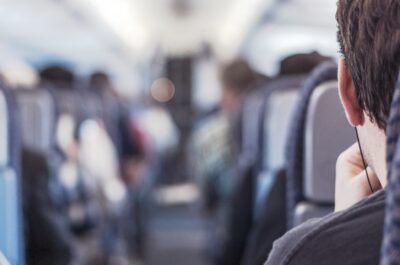What developments and trends will affect consumers and travel agencies in 2016? Business Travel Coalition says there are three issues that will likely be resolved by government, industry and/or customers in 2016 that will impact on individual and corporate consumers’ choices and prices and on the viability of travel agencies.
Τhere are three issues that will likely be resolved by government, industry and/or customers in 2016 that will impact on individual and corporate consumers’ choices and prices and on the viability of travel agencies.
1. Open Skies
The U.S. federal government’s decisions regarding our nation’s commitment to negotiated Open Skies agreements will likely be determined in 2016. Delta Air Lines’ American Airlines’ and United Airlines’ (the “Big Three”) war on Emirates Airline, Etihad Airways and Qatar Airways (the “Gulf Carriers”) received most of the attention in 2015. However, the gambit to freeze Gulf Carrier capacity represents just one front in this epic battle.
The Administration’s indecision has allowed Norwegian Air International’s application, before the U.S. Department of Transportation (the “DOT”) to provide competitive service to the U.S. to languish for two years depriving consumers, and the travel agencies that support them, with new competitive choices and alternatives.
Very importantly, other airlines around the world are consequently less interested in exercising their rights under Open Skies agreements as they have seen Big Three protectionism costing Norwegian millions of dollars along with excessive management time and attention. There are much lower-risk opportunities to utilize expensive airplane assets. This commercial protectionism artificially restricts the growth of business travel and the overall travel and tourism industry undermining the interests of travel agencies, consumers, communities and the U.S.
2. Ancillary Fees
With some reason for hope, DOT will restore comparison-shopping in 2016 after eight years of deceptive Big Three marketing practices that have harmed consumers and travel agencies. Consumers cannot efficiently see, compare and buy ancillary services in the same transaction as the base fare – despite availability of required technology. Airlines have refused to provide this information to travel agents and their very best corporate customers. This costs consumers billions of dollars each year as the fees for such services go undisciplined by market forces and often consumers miss the best offers. Travel agents are harmed because they cannot provide complete customer service without much manual labor and associated costs that have to be passed on to the customer.
3. Travel Agency Channel Discrimination
The Lufthansa Group’s imposition of a 16 Euros surcharge for bookings outside its direct channels is designed to significantly reduce price transparency for consumers and to harm its competitors in indirect travel distribution channels. Such travel agency channel discrimination, if copied by other major airlines, will effectively drive a wedge between travel agencies and their customers. Surcharges will likely reach $50 dollars and above as airlines seek to fundamentally change consumer behavior driving unsuspecting consumers to the Walled Gardens of airline.com where comparison-shopping is non-existent.
Founded in 1994, the mission of Business Travel Coalition is to interpret industry and government policies and practices and provide a platform so that the managed travel community can influence issues of strategic importance to their organizations.
Theodore is the Co-Founder and Managing Editor of TravelDailyNews Media Network; his responsibilities include business development and planning for TravelDailyNews long-term opportunities.






























































































































































































































